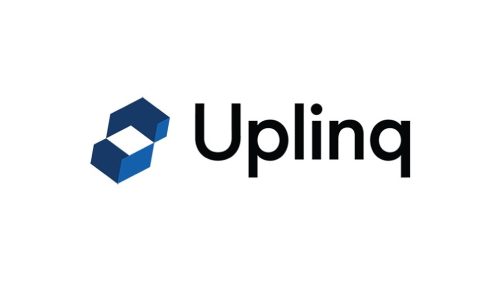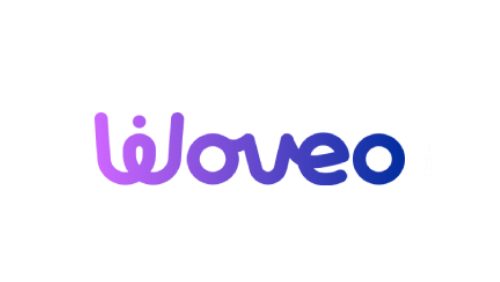Addressing the Wealth Gap:
The Role of Financial Institutions in Fostering Financial Inclusion
Abstract: “Addressing the Wealth Gap: The Role of Financial Institutions in Fostering Financial Inclusion” explores the critical role that financial institutions play in closing the wealth gap in Canada. With marginalized groups, including racialized communities, women, and newcomers, facing persistent economic barriers, equitable access to credit and financial services is crucial. This article highlights key challenges like financial exclusion, limited access to credit, and high reliance on payday lenders among Canadians—even those with above-average incomes. Through innovative credit-building solutions, alternative credit scoring, and financial literacy programs, institutions can empower these communities, foster financial inclusion, and contribute to a stronger economy. By bridging financial gaps, companies like Woveo are demonstrating the impact of interest-free community lending, enabling marginalized groups to climb the Credit Access Ladder. A concerted effort to leverage data and technology can drive transformative economic mobility, ensuring that all Canadians have the opportunity to achieve financial stability and pursue their aspirations.
The wealth gap in Canada is deepening, particularly among marginalized communities, including people of color, immigrants, and women. This disparity poses significant challenges not only to these groups but also to the broader economy. Recognizing these issues is essential for creating strategies that promote financial inclusion and economic growth.
Statistics reveal that the median net worth of racialized families is considerably lower than that of non-racialized families, exacerbating social inequities. Furthermore, women, especially those in minority groups, face barriers that hinder their financial empowerment, such as lower pay and higher rates of part-time employment. The Global Gender Gap Report indicates that closing the economic gender gap could add $150 billion to Canada’s GDP.
Financial Exclusion and Economic Impact
Financial exclusion remains a significant barrier for many Canadians. According to a 2022 report, approximately 1.7 million Canadians do not have access to traditional financial services. This exclusion hinders their ability to save, invest, or build credit, impacting overall economic productivity. Financial exclusion contributes to slower GDP growth and potentially negative per capita GDP, as it limits consumer spending.
Credit Access Challenges
Access to credit is another critical issue. Many Canadians struggle with lower credit scores or lack sufficient credit history, making it challenging to secure loans. Approximately 30% of adults in Canada have either a poor credit score or no credit history, which significantly restricts their borrowing options. This barrier often forces aspiring homeowners to abandon their dreams, with many Canadians believing they may never own a home due to credit issues.
Research shows that over 1.5 million Canadians rely on payday lenders, despite earning a reasonable income. These individuals often turn to high-interest loans due to insufficient access to traditional credit sources. The irony is that many individuals who earn above-average incomes still find themselves turning to payday lenders due to financial constraints. Many Canadians earning over $75,000 annually have used payday loans at some point, illustrating that income alone does not guarantee financial stability. For these individuals, high-interest loans can lead to a vicious cycle of debt, ultimately affecting their ability to invest in long-term financial goals, such as home ownership and savings for children’s education.
Accelerating Credit Building
As bankers and lenders, the responsibility lies in finding solutions that accelerate the path to credit building for marginalized communities. Innovative approaches such as alternative credit scoring models and community-focused lending can pave the way for financial inclusion. Leveraging data from utility payments, rental history, and other non-traditional sources can help establish credit histories for those who might otherwise be excluded.
Additionally, financial literacy programs targeting marginalized communities can empower individuals to understand their financial options better and improve their credit scores over time. Collaborative efforts between financial institutions and community organizations can help bridge the knowledge gap and build trust among underrepresented groups.
We have learned a lot through the Woveo rollout on how platforms can bridge the financial inclusion gap. Take the NMIO community, for instance—a group of 250 members who have utilized Woveo to facilitate over $800,000 in credit transactions, providing interest-free loans for small business ventures, education, and household expenses. By leveraging its social collateral credit risk strategy, the community has achieved a remarkable 100% repayment rate. Woveo has not only helped this community access credit but also ensured that their financial behaviors are reported to Equifax. By building their credit histories, these individuals are moving up the Credit Access Ladder, ultimately gaining access to more traditional financial services and improving their long-term financial stability.
The Path Forward: Financial Inclusion and Economic Mobility
Addressing the wealth gap and promoting financial inclusion can significantly enhance upward economic mobility. By equipping marginalized communities with the tools to build credit and access financial services, we foster a more equitable society. A sincere dialogue is needed where data and technology can be leveraged to drive inclusion. In conclusion, tackling the growing wealth gap and fostering financial inclusion is not just a moral imperative but also a significant economic opportunity. Together, we can reshape the financial landscape, ensuring that every Canadian has the chance to fulfill their dreams.
Sign up for our Finance Summit Series




